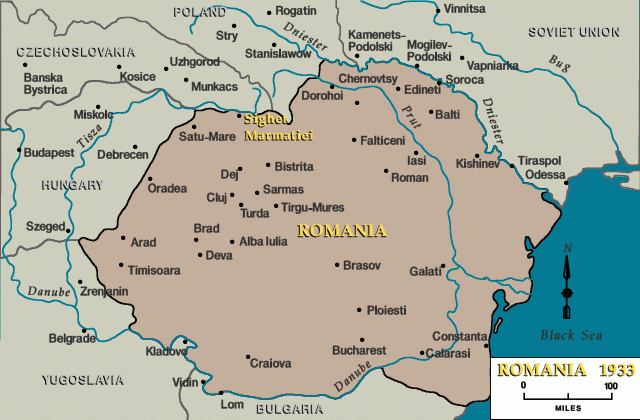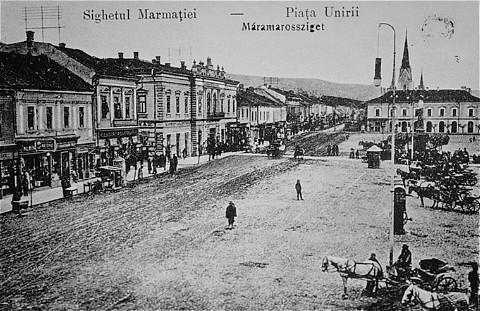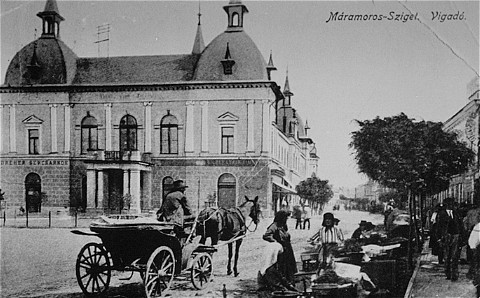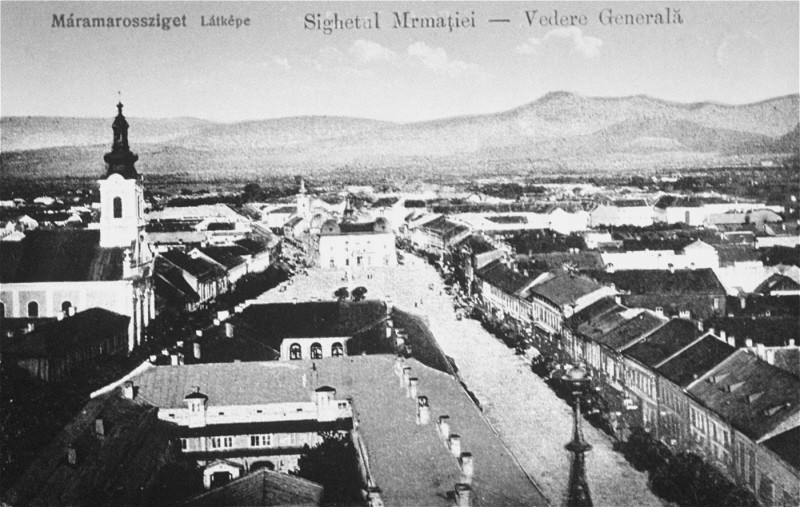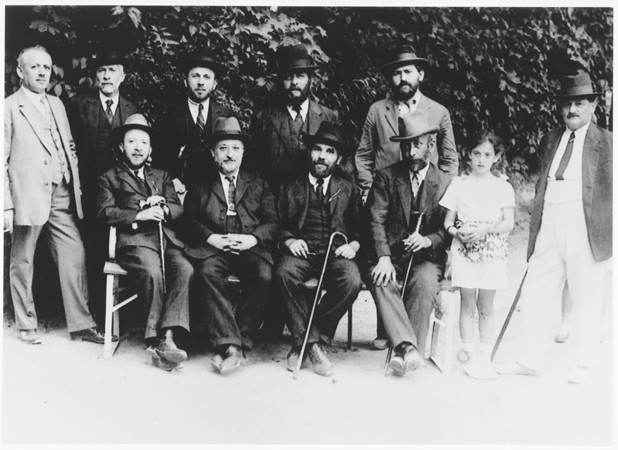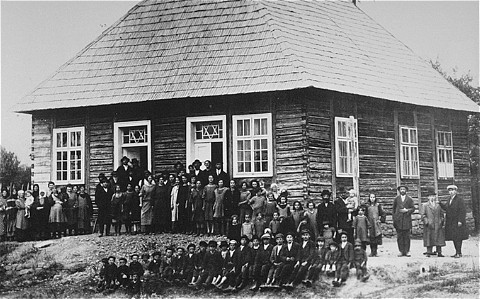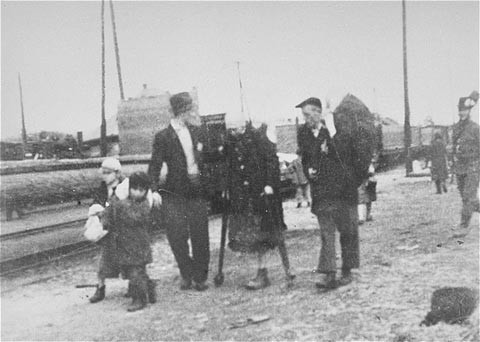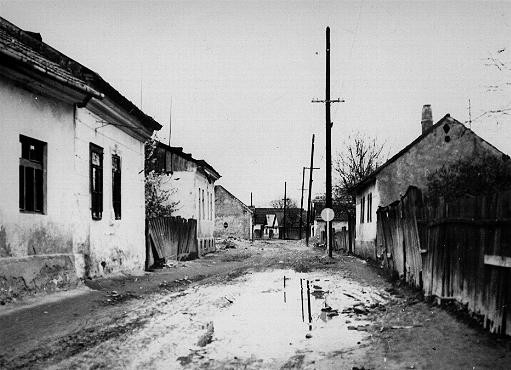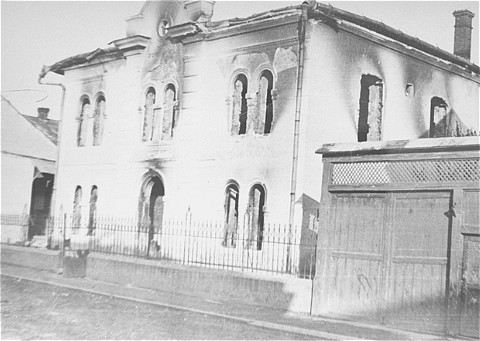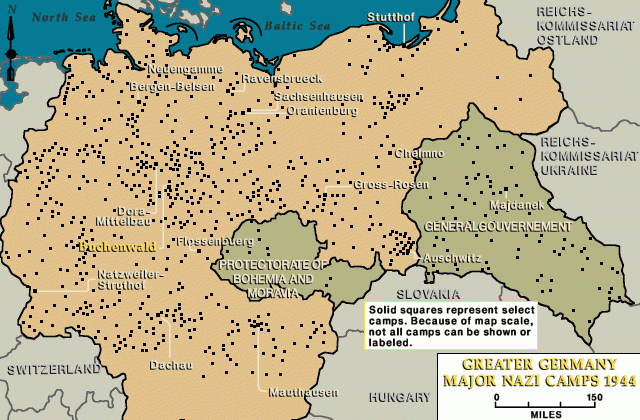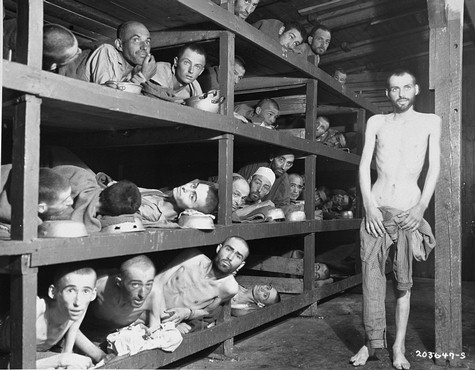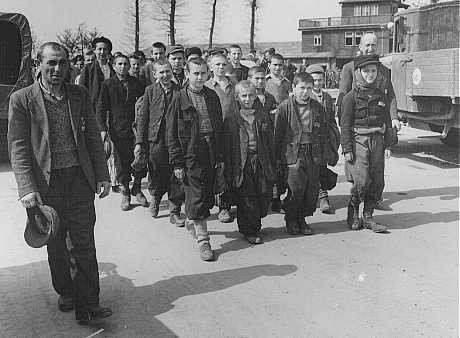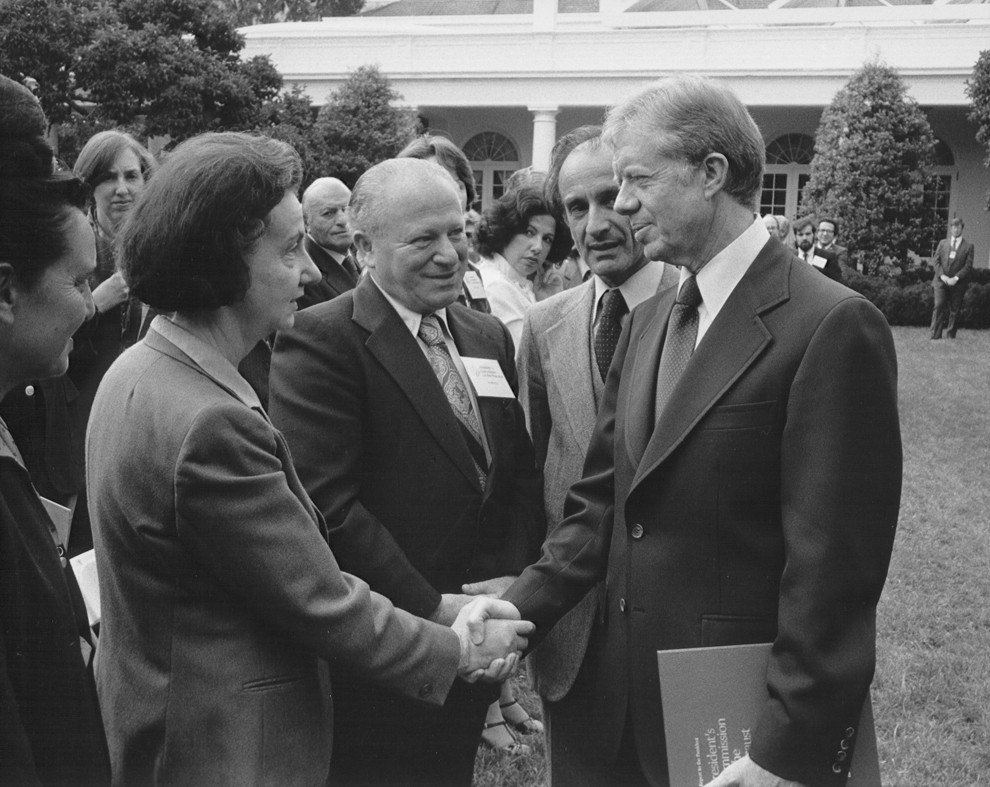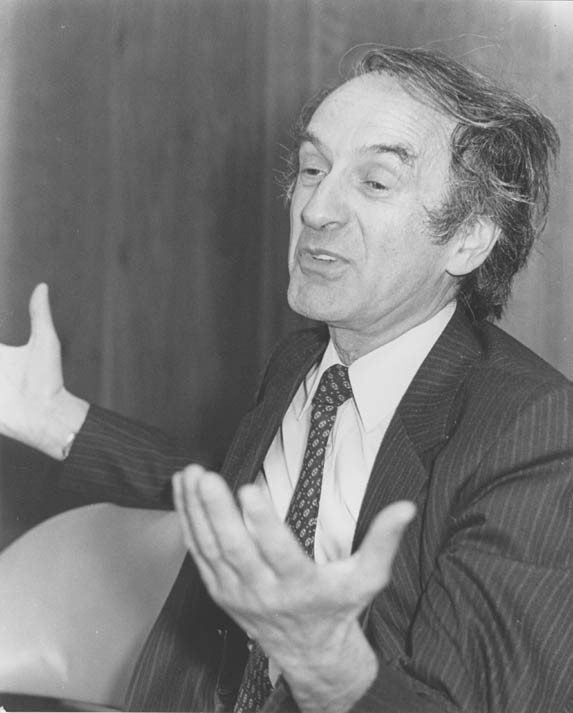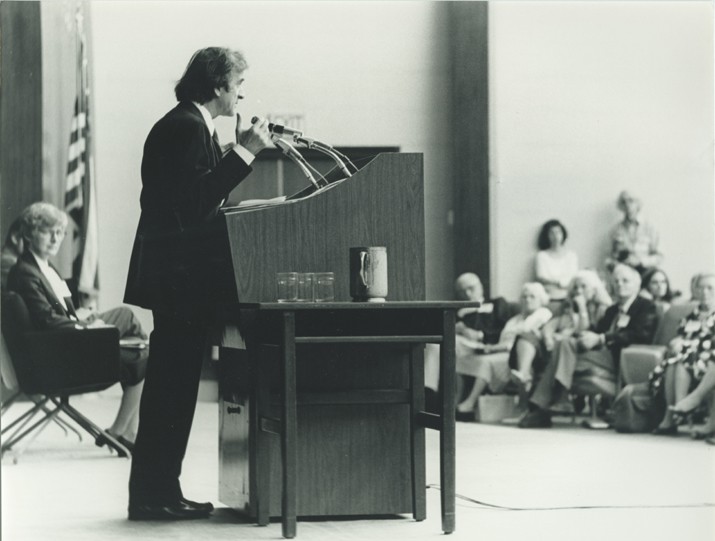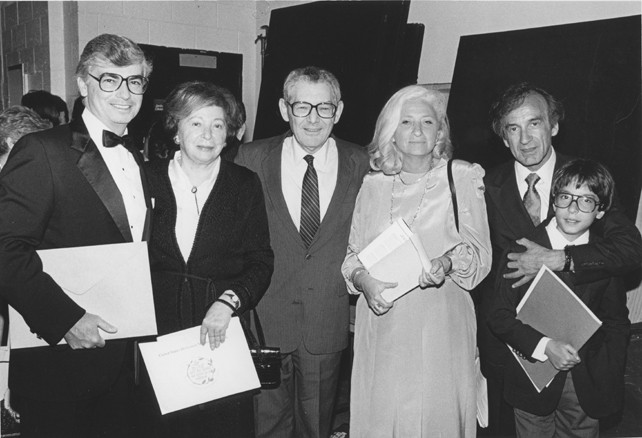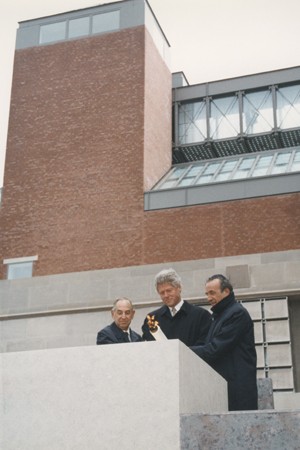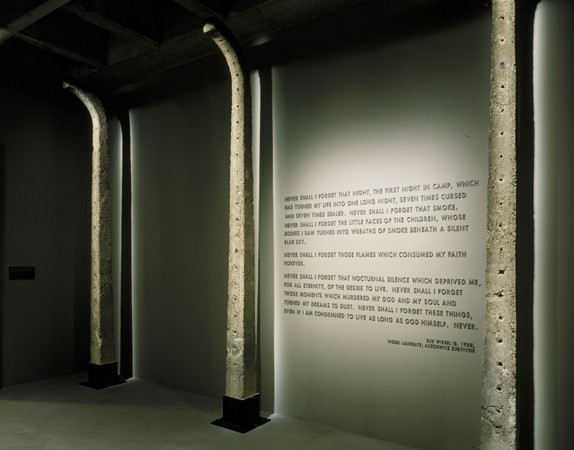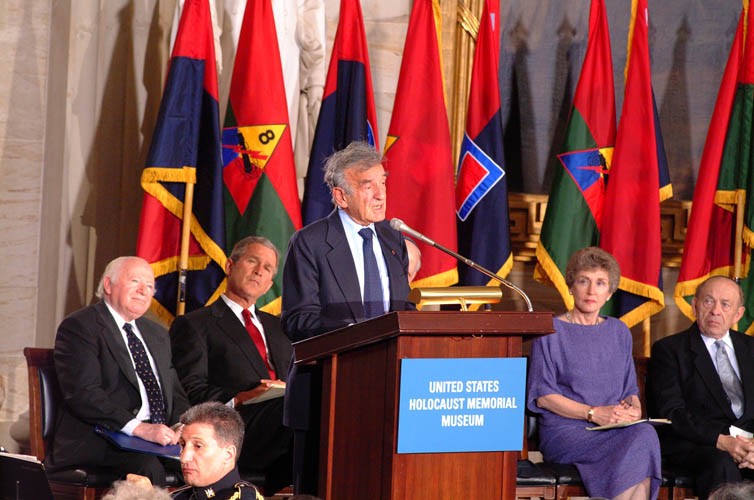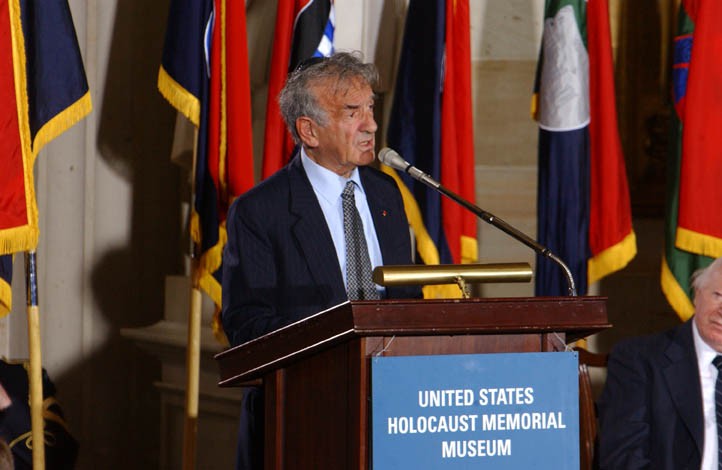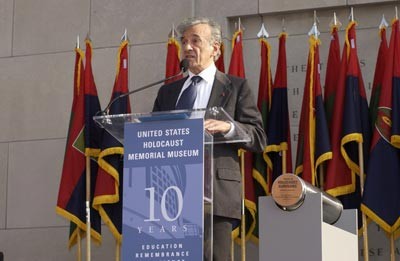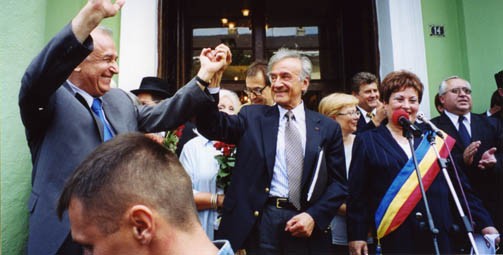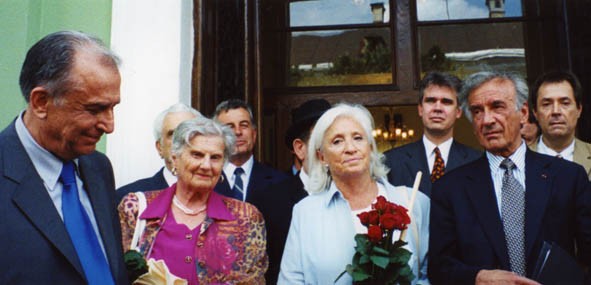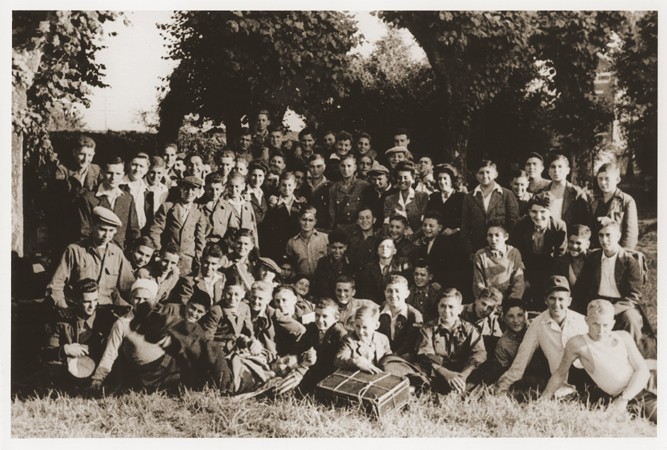
Elie Wiesel Timeline and World Events: 1928–1951
Elie Wiesel was a survivor of Auschwitz and human rights activist who devoted his life to educating the world about the Holocaust. He was awarded the Nobel Peace Prize in 1986. Browse a timeline of key events in the world and in Wiesel's life from 1928–1951.
1928
The Kellogg-Briand Pact renounces war as an instrument of national policy.
On September 30, Elie Wiesel is born in Sighet, Transylvania, then and now part of Romania.
1931
Japan invades Manchuria, beginning hostilities in the Far East.
1933
Adolf Hitler is appointed Chancellor of Germany and the Nazi Party takes control of Germany's government. The first permanent concentration camp, Dachau, is established.
1935
The Nuremberg Race Laws against Jews are decreed, depriving Jews of German citizenship.
1936
The SS renames its units deployed at concentration camps the "Death's Head Units," later known as "Death's Head Battalions." SS chief Heinrich Himmler is appointed chief of the German Police. The summer Olympic games are hosted in Berlin.
1937
Japan invades China proper, initiating the Pacific War that would become a part of World War II.
1938
Kristallnacht (night of crystal, also known as the night of broken glass): a government-organized pogrom against Jews in Germany, Austria, and the Sudeten region of Czechoslovakia results in widespread destruction of synagogues, businesses, and homes and the loss of at least 91 lives in November.
1939
In April, Britain and France guarantee the integrity of Poland's borders after Hitler violates Munich Agreement of 1938 by invading and dismembering Czechoslovakia. In September, Germany invades Poland, starting World War II in Europe. In response, Great Britain, France, and the British Dominions declare war on Germany. In October, Nazi German authorities establish the first ghetto in Piotrków Trybunalski in German-occupied Poland. Jews in parts of occupied Poland are forced to wear armbands bearing the Star of David for identification.
1940
In spring, Germans conquer Denmark, Norway, France, Belgium, Luxembourg, and the Netherlands; Winston Churchill becomes British Prime Minister. In May, Auschwitz concentration camp is established near the Polish city Oswiecim. Italy declares war on Britain and France in June. In August, at German and Italian arbitration, Romania is compelled to cede northern Transylvania, including Sighet, to Hungary. In autumn, Hungary, Romania, and Slovakia join the German-Italian alliance, called the Axis. German authorities begin to seal off ghettos in German-occupied Poland.
Elie Wiesel and his family become residents of Hungary.
1941
Nazi Germany attacks the Soviet Union on June 22. The British and the Soviets sign a Mutual Assistance agreement. On July 31 Nazi Security Police chief Reinhard Heydrich is given authorization to plan and coordinate a "total" and "final" solution of the "Jewish Question." Construction of Auschwitz-Birkenau camp (Auschwitz II) begins in autumn. The US enters World War II on December 8, a day after Germany's Axis partner, Japan, attacks the US Naval base at Pearl Harbor, Hawaii. On December 8, the first of the killing centers in Nazi-occupied Poland begins operations.
Twelve-year-old Elie Wiesel begins studying the Kabbalah.
1942
The Wannsee Conference held in Berlin in January in Berlin ensures the full cooperation of all state, Nazi Party, and SS agencies in implementing "the Final Solution"—a plan to murder the European Jews—under the coordination of the SS and police.
1943
Jews in the Warsaw ghetto rise up against their oppressors. By the end of the year, the Germans and their Axis partners have killed more than four million European Jews.
1944
Germany occupies Hungary in March. Between late April and early July, around 440,000 Hungarian Jews are deported from Hungary, most of them to Auschwitz. On June 6, D-Day, Anglo-American forces establish the first Allied beachhead in western Europe on the Normandy coast of German-occupied France. On June 22, Soviet forces begin a massive offensive in Belarus and advance to the outskirts of Warsaw in six weeks. Anne Frank's family is arrested by the German occupation authorities in Amsterdam, the Netherlands.
Elie Wiesel is fifteen years old when he and his family are deported in May 1944 by the Hungarian gendarmerie and the German SS and police from Sighet to Auschwitz. His mother and younger sister perish; his two older sisters survive.
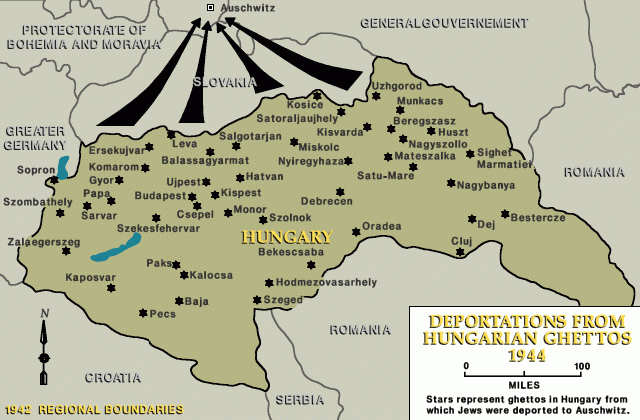
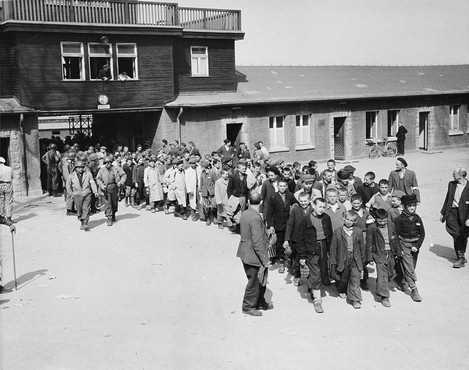
1945
Soviet troops liberate Auschwitz on January 27. US troops liberate Buchenwald on April 11. Germany surrenders on May 7; World War II in Europe ends on May 8. On September 2, the Pacific War ends with the surrender of Japan after the US drops atomic bombs on Hiroshima and Nagasaki in August. World War II is over. The United Nations is founded. Establishment of International Military Tribunal in August. On November 20, the trial of the top Nazi leaders begins in Nuremberg under the auspices of the International Military Tribunal. The Allies (France, Great Britain, the Soviet Union) indict 22 top-ranking Nazi leaders and six German and Nazi Party organizations for crimes against the peace, war crimes, and crimes against humanity.
SS units evacuate Auschwitz in January. Elie and his father are transferred to Buchenwald concentration camp, near Weimar Germany. Elie's father dies in January; Elie is liberated with the arrival of US troops in April.
1946
Eighteen of 21 defendants are convicted by the International Military Tribunal at the Nuremberg Trial; 12 are sentenced to death.
1945–1949
177 Nazi offenders are tried under the jurisdiction of the International Military Tribunal in 12 subsequent Nuremberg trials of second rank Nazi leaders. Thousands more Nazi perpetrators and their collaborators are tried in the four zones of occupied Germany and in the countries that Germany and its Axis partners occupied.
1948
The State of Israel is created. On May 14, 1948, the last British forces withdraw from Palestine and the State of Israel is established in accordance with the United Nations Partition Plan that proposed the partition of Palestine into two states, an Arab state and a Jewish state.
The US Congress passes the Displaced Persons Act, authorizing 200,000 displaced persons to enter the United States.
On December 9, 1948, in the shadow of the Holocaust, the United Nations approves the Convention on the Prevention and Punishment of the Crime of Genocide. This convention establishes "genocide" as an international crime, which signatory nations "undertake to prevent and punish."
Elie Wiesel studies at the Sorbonne in Paris. He becomes interested in journalism.
1949
Elie Wiesel goes to Jerusalem for the first time.
1951
The United Nations Convention on the Prevention and Punishment of the Crime of Genocide enters into force.
Critical Thinking Questions
Explore the many legacies of Elie Wiesel.


